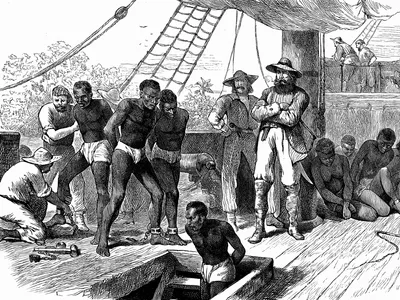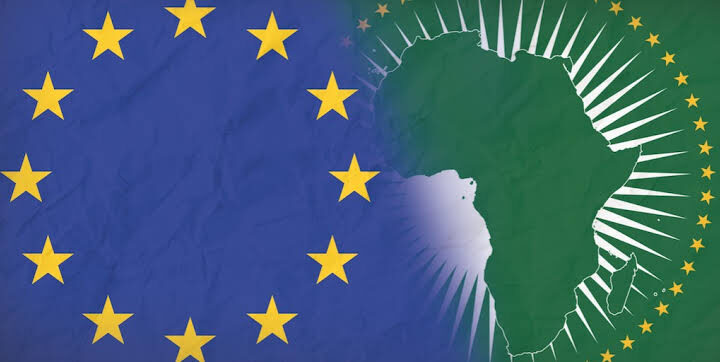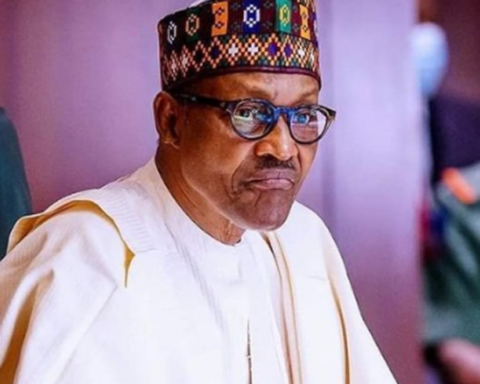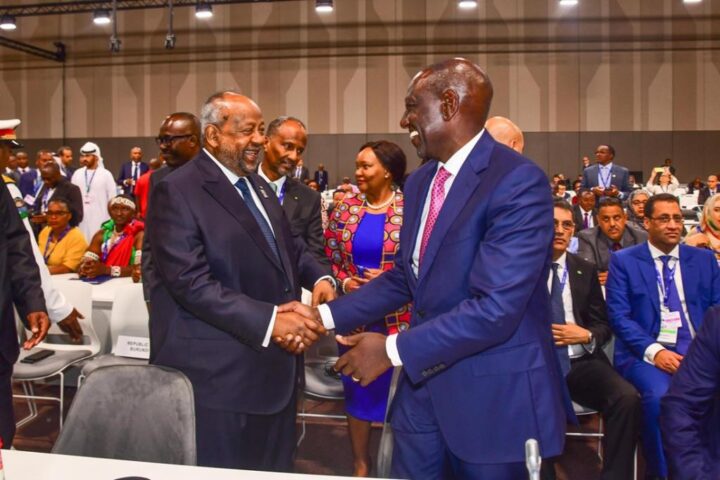An interesting conference attended by senior government officials from across Africa and the Diaspora community was held in Accra, Ghana last Thursday. The theme of the discussion was Europe’s creation of wealth in the most inhumane manner and at the cost of poverty during the transatlantic slave trade era. This was between the 16th and 19th centuries when foreign overlords forcibly uprooted an estimated 12.5 million Africans from their homeland, transporting them in the most dehumanizing conditions (termed Middle Passage) to Europe and the Americas where survivors end up enslaved on brutal plantations.
The forced enslavement of Africans remains perhaps the darkest chapter in human history, leaving an indelible mark on the African continent and its people across generations. The repercussions of this deplorable trade reverberate today as social, economic, and political inequalities. In the light of this historical injustice, there have been growing calls for economic reparations to be paid to African countries to rectify the enduring consequences of the transatlantic slave trade. At the Accra summit, President Nana Addo Akufo-Addo of Ghana denounced the British and other European countries for enriching themselves during the slave trade while “enslaved Africans did not receive a cent”.
Join our WhatsApp ChannelThe host President told the summiteers: “It is time that Africa, whose sons and daughters had their freedoms controlled and were sold into slavery, also received reparations.” In the end, the conference came up with a communique that called for the establishment of a Global Reparations Fund (GRF) that would seek and receive compensation owed to millions of Africans enslaved centuries ago during the transatlantic slave trade. While this is happening in the motherland, calls for reparations have gained momentum in countries throughout the African Diaspora.
Two months ago, several former British Caribbean colonies announced their intention to send letters to the British royal family, the Church of England and Lloyd’s of London to demand reparations and an official apology for their role in the slave trade. In the United States, the advocacy by people of African descent for reparations is hitting the right notes as California governor, Gavin Newsom signed legislation in 2020 to create the nine-member California Reparations Task Force that sent its final report to Newsom and the state legislature in June. In American cities, reparations are gaining traction with Evanston, Ill., a Chicago suburb, in 2019 becoming the first city to pass a reparations resolution for qualified Black residents.
Even as Africans at home and in the Diaspora demand reparations for the horrible transatlantic trade, Prime Business Africa believes that a good starting point would be the extraction of an official public apology from progenies of perpetrators of the dehumanizing trade. This is to get European nations to show that they at least recognize the lasting consequences that their horrendous role in the slave trade has had on the African continent. Indeed, this official apology shouldn’t be a mere symbolic gesture but a necessary acknowledgment of historical wrongdoing, which would pave the way for a genuine dialogue on reparations. For starters, this public apology will go a long way in discontinuing the legacies of enslavement, colonialism, and apartheid suffered by people of African descent.
A survey commissioned by the European Union’s Agency for Fundamental Rights the result of which was released on the 25th of October 2023 found an increased level of racism against Black people across the EU. From a survey of 6,752 people of sub-Saharan African descent living in 13 E.U. countries, 45 per cent of them said they experienced racial discrimination – a 6 per cent increase from 2016. Chairman of the Permanent Forum on People of African Descent, Epsy Campbell Barr disclosed that his people are more exposed to violence and death as a result of encounters with law enforcement officials and have remained victims of systemic discrimination and racialized attacks, suffer “health disparities” all of which subject them to “the profound impact that racism and racial discrimination have on both physical and mental health”.
While Prime Business Africa believes that an acknowledgment of the lasting consequences and the offer of apology over the slave trade will give respite and succour to people of African descent in the West, payment of reparations to Africa is exigent, given that the wide gap between the developed and developing world can be traced back to the historical exploitation perpetuated by the slave trade. The amassed wealth and development that resulted from the forced labor of millions of Africans laid the foundation for Europe’s economic ascendancy during the colonial era. Hence, the call for reparations must not be viewed as an isolated demand but as part of a broader movement for global justice and equality.
The responsibility for reparations extends beyond the former colonial powers directly involved in the slave trade. The global community, including countries that indirectly benefited from the exploitation of enslaved Africans, shares a collective responsibility in assuaging generations of injustices. Considering the evils and horrors of the transatlantic slave trade, Africa should be adequately compensated even if for the sake of the moral and legal rights and dignity of the people. This can be done by addressing challenges faced by Africa in all sectors of its economy. It should be a negotiated settlement that will benefit the people of the continent.
Also forming part of the compensations for the transatlantic trade should be development assistance to countries, restitution of colonized resources, and systemic correction of oppressive policies and laws. It is with the view to harness and maximize all of these measures that the African Union (AU) should be very committed to the establishment of the GRF as a veritable vehicle for the receipt and dispensation of financial contributions from all the countries built on the back of slavery.
Prime Business Africa calls on Europe to take advantage of the proposed GRF, which will be supported by an expert committee established by the AU Commission in collaboration with African nations, to confront its sordid past and work collectively towards where the scars of the Transatlantic Slave Trade no longer define the trajectory of African countries. The developed world must fulfill this moral obligation to rectify the profound harm inflicted on an entire continent through human cruelty and exploitation that were the hallmarks of the slave trade.
The forced enslavement of Africans remains perhaps the darkest chapter in human history, leaving an indelible mark on the African continent and its people across generations. The repercussions of this deplorable trade reverberate today as social, economic, and political inequalities. Based on this historical injustice, there have been growing calls for economic reparations to be paid to African countries to rectify the enduring consequences of the transatlantic slave trade. At the Accra summit, President Nana Addo Akufo-Addo of Ghana denounced the British and other European countries for enriching themselves during the slave trade while “enslaved Africans did not receive a cent”.
The host President told the summiteers: “It is time that Africa, whose sons and daughters had their freedoms controlled and were sold into slavery, also received reparations.” In the end, the conference came up with a communique that called for the establishment of a Global Reparations Fund (GRF) that would seek and receive compensation owed to millions of Africans enslaved centuries ago during the transatlantic slave trade. While this is happening in the motherland, calls for reparations have gained momentum in countries throughout the African Diaspora.
Two months ago, several former British Caribbean colonies announced their intention to send letters to the British royal family, the Church of England and Lloyd’s of London to demand reparations and an official apology for their role in the slave trade. In the United States, the advocacy by people of African descent for reparations is hitting the right notes as California governor, Gavin Newsom signed legislation in 2020 to create the nine-member California Reparations Task Force that sent its final report to Newsom and the state legislature in June. In American cities, reparations are gaining traction with Evanston, Ill., a Chicago suburb, in 2019 becoming the first city to pass a reparations resolution for qualified Black residents.
Even as Africans at home and in the Diaspora demand reparations for the horrible transatlantic trade, Prime Business Africa believes that a good starting point would be the extraction of an official public apology from progenies of perpetrators of the dehumanizing trade. This is to get European nations to show that they at least recognize the lasting consequences that their horrendous role in the slave trade has had on the African continent. Indeed, this official apology shouldn’t be a mere symbolic gesture but a necessary acknowledgment of historical wrongdoing, which would pave the way for a genuine dialogue on reparations. For starters, this public apology will go a long way in discontinuing the legacies of enslavement, colonialism, and apartheid suffered by people of African descent.
A survey commissioned by the European Union’s Agency for Fundamental Rights the result of which was released on the 25th of October 2023 found an increased level of racism against Black people across the EU. From a survey of 6,752 people of sub-Saharan African descent living in 13 E.U. countries, 45 per cent of them said they experienced racial discrimination – a 6 per cent increase from 2016. Chairman of the Permanent Forum on People of African Descent, Epsy Campbell Barr disclosed that his people are more exposed to violence and death as a result of encounters with law enforcement officials and have remained victims of systemic discrimination and racialized attacks, suffer “health disparities” all of which subject them to “the profound impact that racism and racial discrimination have on both physical and mental health”.
While Prime Business Africa believes that an acknowledgment of the lasting consequences and the offer of apology over the slave trade will give respite and succour to people of African descent in the West, payment of reparations to Africa is exigent, given that the wide gap between the developed and developing world can be traced back to the historical exploitation perpetuated by the slave trade. The amassed wealth and development that resulted from the forced labor of millions of Africans laid the foundation for Europe’s economic ascendancy during the colonial era. Hence, the call for reparations must not be viewed as an isolated demand but as part of a broader movement for global justice and equality.
The responsibility for reparations extends beyond the former colonial powers directly involved in the slave trade. The global community, including countries that indirectly benefited from the exploitation of enslaved Africans, shares a collective responsibility in assuaging generations of injustices. Considering the evils and horrors of the transatlantic slave trade, Africa should be adequately compensated even if for the sake of the moral and legal rights and dignity of the people. This can be done by addressing challenges faced by Africa in all sectors of its economy. It should be a negotiated settlement that will benefit the people of the continent.
Also forming part of the compensations for the transatlantic trade should be development assistance to countries, restitution of colonized resources, and systemic correction of oppressive policies and laws. It is with the view to harness and maximize all of these measures that the African Union (AU) should be very committed to the establishment of the GRF as a veritable vehicle for the receipt and dispensation of financial contributions from all the countries built on the back of slavery.
Prime Business Africa calls on Europe to take advantage of the proposed GRF, which will be supported by an expert committee established by the AU Commission in collaboration with African nations, to confront its sordid past and work collectively towards where the scars of the Transatlantic Slave Trade no longer define the trajectory of African countries. The developed world must fulfill this moral obligation to rectify the profound harm inflicted on an entire continent through human cruelty and exploitation that were the hallmarks of the slave trade.

















![Gender Activism An Economic Necessity In Africa [PBA Editorial]](https://www.primebusiness.africa/wp-content/uploads/2023/11/vaw-720x480.png)

Follow Us